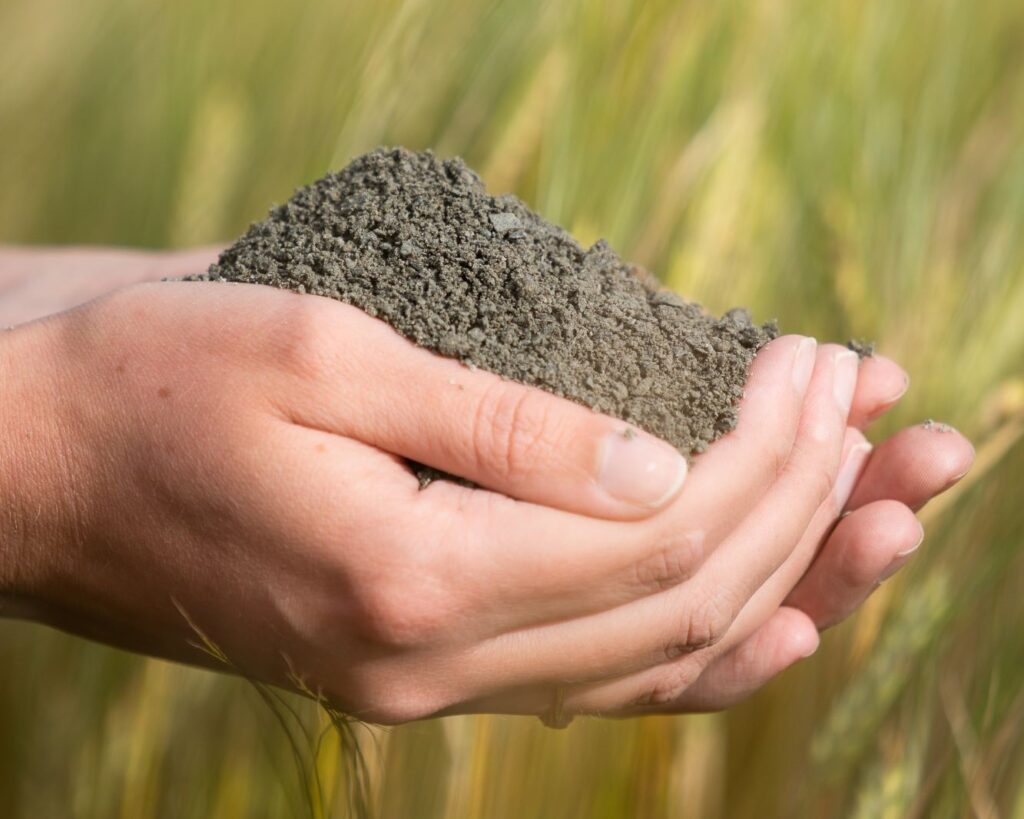
The head of a global carbon-capture company hopes ground-breaking research by Newcastle University paves the way for crucial Government support in the widespread use of volcano dust on farmer’s fields.
Jim Mann, the CEO of UNDO made a whistle-stop visit to the North East earlier this month, to see the scientific results for himself and to celebrate the academic team’s success in showing the value to farmers of the soil-enhancing treatment.
But he says that while the University team has shown the way forward, the real key to any speedy success will be the Government getting behind it and making significant investments.
It has been known for hundreds of years that basalt rock from volcanic eruptions eventually breaks down into fertile soil.
UNDO simply breaks the rock down into much smaller particles to ensure that its absorption into the soil is almost immediate, rather than the slow process of hundreds of years.
It’s the same difference as putting coffee granules in your cup, (damn fine coffee) or the original cocoa bean, (an altogether slower process).
And now that the university research has shown that the product significantly increases crop yields in UK climates, Mann hopes this ‘win-win’ solution will attract the recognition and backing it needs from the Government.
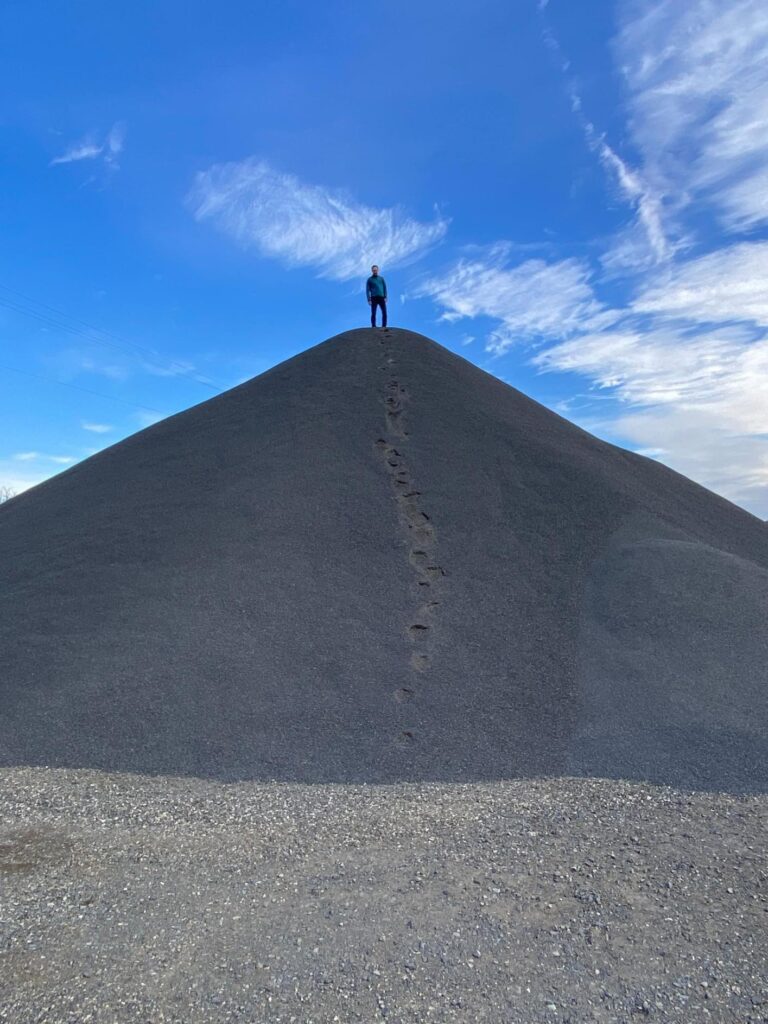
It is, after all, a climate solution which requires no sacrifices from the general public, and no societal change of behaviour which might risk it becoming a ‘wedge’ issue politically.
“As a company, we’re on a global mission to capture carbon from the atmosphere and one of the greatest carbon capturers on the planet is basalt rock,” Jim explained.
“By using a process called Enhanced Rock Weathering we can spread thousands of tonnes of this rock on fields, improving the quality of the soil and now that the university has provided peer-reviewed proof of the potential value to farmers it will make our work a lot easier in helping make this a popular choice in the agricultural sector.
“The research is significant for farmers because it should give them all the confidence they need to start deploying basalt rock, knowing it will increase crop yields and revenue.
“It’s significant to climatologists because one of basalt’s defining characteristics is its ability to absorb carbon from the air in vast quantities and once it is removed, it is removed permanently.”
UNDO is playing its part by delivering the basalt rock free of charge to farmers from nearby quarries and then looking to claim climate credits back to make further investments.
- Read more: How do we keep pub doors open?
- Read more: Rain stops play
Its mission is to spread enough rock by 2025 to remove a million tonnes of CO2. Longer-term, it has many more ambitious goals.
But Mann acknowledges that the really big players in this sector could be the UK Government, which has the resources to make an immediate and major impact.
“What we really need to see, if we are going to achieve the levels of carbon removal we need to be achieving, is the likes of Defra — the Department for Environment, Food and Rural Affairs — getting on board with this,” he says, on his arrival at Nafferton Farm in the Tyne Valley where research was carried out, (literally), in the field.
“We need to see Defra incentivising farmers to spread basalt rock because at the moment UNDO gives it free to farmers and takes up a lot of the cost which can take time to claim back,” he continued. “In Scotland, where we have put in a lot of work, we have a queue of farmers keen to introduce it.
“But if we are to get to the level where it’s really attractive to farmers across the board, we need subsidies — something similar to the way they are approaching this in the United States to scale up rapidly.
“It should all be about quick uptake and now the university has shown there are positive benefits for farmers, as well as for the environment, it should be a no-brainer and the quicker we start the better.
“If you look at lime, for example, lime raises the PH of soil to get more nutrients in it.
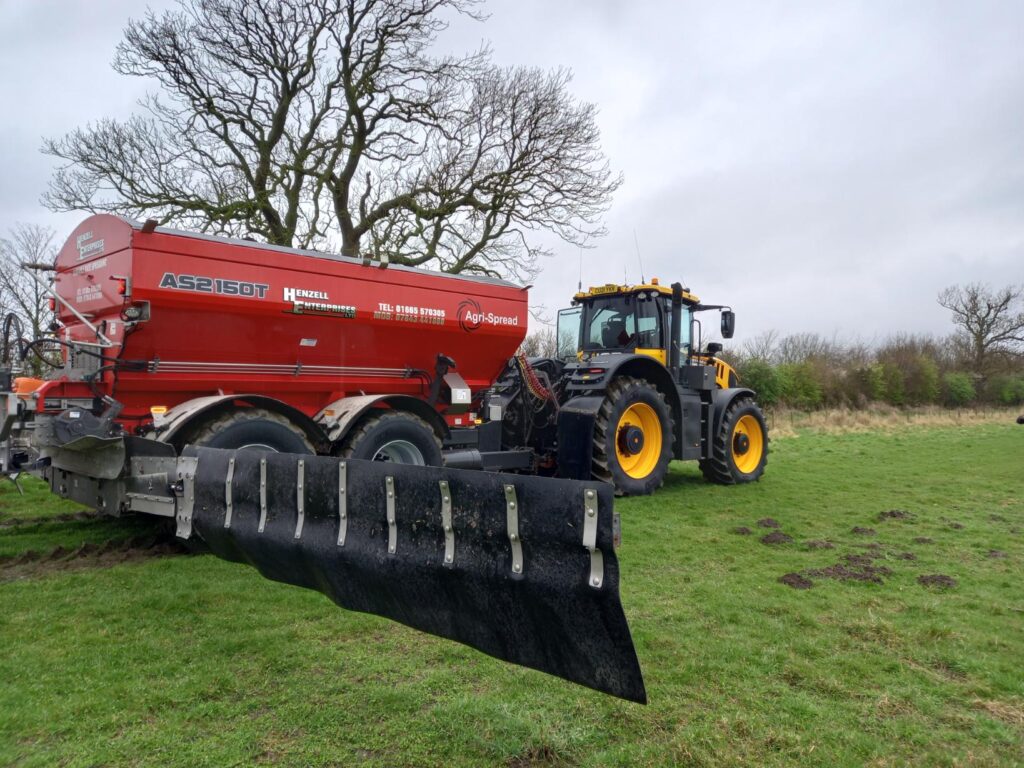
“Basalt has the same quality, it raises the PH but it also adds nutrients to the soil, so an incentive which moves people away from lime — which is generally an emitter of CO2 – towards basalt instead, would be a huge benefit to the UK in terms of us hitting our Paris Agreement targets.”
Mann’s journey to the North East this month was something of a return to where it all started for him.
Although now based in Scotland with his partner and their two children, his formative years were spent in Lancashire and the North East. He describes himself as ‘a northerner’ and he was educated here too, studying ecology at Durham University in the mid-1990s.
His studies at Durham proved to be a launchpad and Jim made a successful career out of several businesses before his mind turned full-time toward climate and climate change, an issue he describes as always being an interest.
UNDO has been operational for less than four years but already has a team of 50 and has spread thousands of tonnes of basalt rock in Australia, Canada, the USA and the UK with field trials, (literally), set up in East Africa.
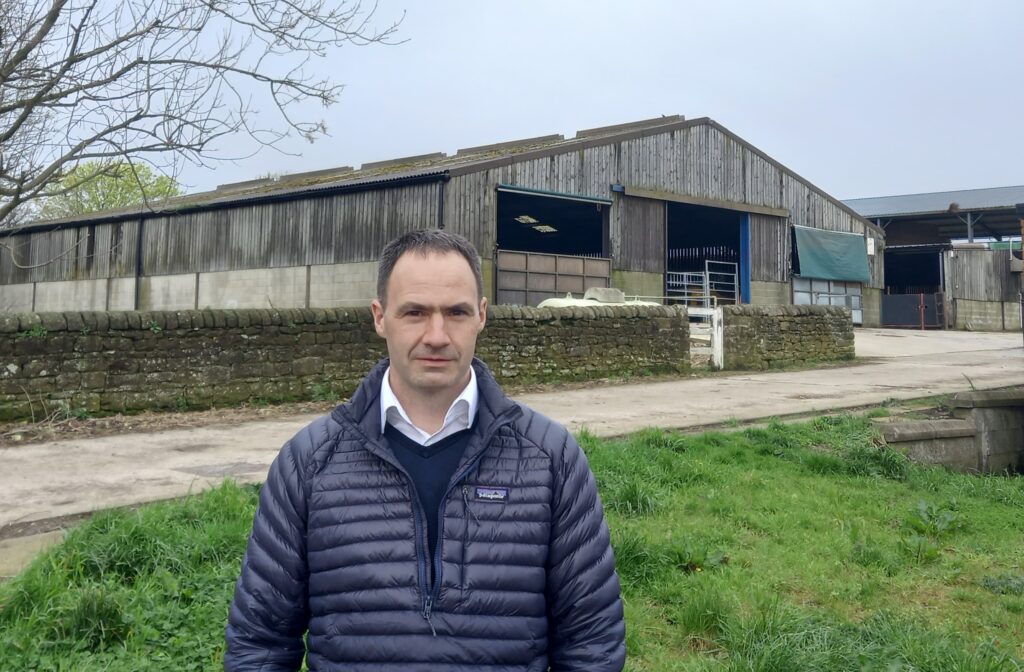
The company has been nominated for a Prince William Earthshot Award for its pioneering and inspiring work.
But while UNDO has global aspirations and rapidly expanding its overseas market, its CEO would still love to see his own home counties leading the way on this technology and setting an example others can follow in the years ahead.
Having been the source of the first scientific proof of basalt dust’s impressive effect on crop yields in temperate climates, the North East is also perfectly placed to be among the first to take advantage of this knowledge.
For it turns out the region is particularly well situated to make the most of the soil-enhancing material.
“The North East is very interesting to us because it has plenty of quarries and plenty of basaltic rock and good quality basaltic rock at that,” said Mann. “On top of that, a lot of it is very close to excellent farmland.
“What you are looking for, particularly when driving down emissions in the process, is not travelling too far from the quarry because you are moving something heavy, which will create emissions.
“We have worked very hard on that process though and are now 95% efficient — which means we create less than 5% emissions compared to the 95% of carbon we remove.
- Read more: Vinyl’s big day has a flip side
- Read more: Jesterval interval comes to a happy ending
“That’s one part of the equation but the other part is that, particularly in Northumberland and parts of County Durham, the agriculture is very good — fields easy to spread on, fields where they’re using tractors — so it’s an attractive place for us to work and we’d love to make some real progress now.”
He sees plenty of other benefits too for rural communities and the use of a plentiful product that is not exploitative of natural resources.
“Companies aren’t quarrying basalt for itself,” he explains.”Basalt is just a by-product of the search for other materials they’re quarrying for but it’s a by-product we can use in the battle against climate change.”
Unlike the fossil fuel model, which is often breathtakingly and shamelessly exploitative, UNDO is planning basalt rock deployment so it has community benefits for all – “we’ve focused on going to farms directly,” says Mann.
“We are community-led and want to work closely with farmers, local quarries and haulage companies so that all the benefits are local.
“Communities that are involved and are benefiting right now, (and we have an increasing number in Scotland), are benefiting from jobs, yields, quarry and haulage.
“That’s where it’s unique — a large proportion of value stays in the community, which is why we use local contractors and their supply chains and look to create or safeguard jobs.”
While Mann enjoyed his brief return to the North East and the company of Professor David Manning, who oversaw the research, as well as Nafferton farm director, James Standen, the real draw had been the offer of an interview with BBC Look North.
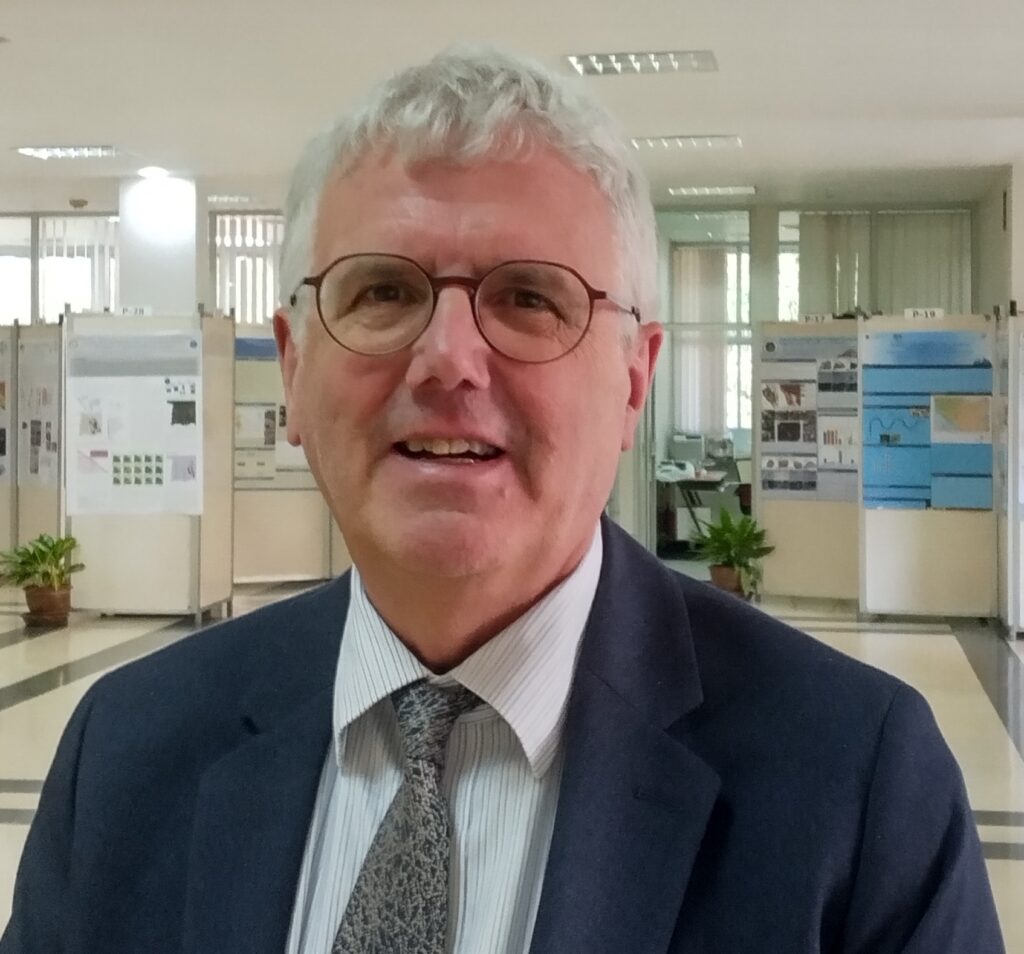
The UNDO CEO has been gratified by the waves the Newcastle University paper has generated in the media over the past few weeks but is passionate about spreading the word further and wider.
He hopes the more people know about the science of volcano dust and its carbon-capturing, crop-enhancing properties, the greater the clamour for its uptake.
Increasingly, people are becoming aware that tackling climate change might mean changes to their lifestyles that they will not welcome.
But what if we could find a simple, easy, painless way of sucking that carbon out of the atmosphere that didn’t require any sacrifices?
The North East is very interesting to us because it has plenty of quarries and plenty of basaltic rock and good quality basaltic rock at that,
Jim Mann, CEO of UNDO
That would be the golden ticket, as far as politicians and policymakers are concerned – and, somewhat unexpectedly, the remains of long-ago volcanic eruptions provide just such a solution.
On that score, Mann will have been pleased to know that his visit was also covered by the BBC News online team, as well as the Look North cameras and the online story subsequently posted on X.
That single social media post alone has already been viewed more than 50,000 times — a result which in itself would justify his welcome day out in a Tyne Valley field.
Hopefully, a few of those visits will have been from curious North East farmers.
Maybe even someone from Defra….











